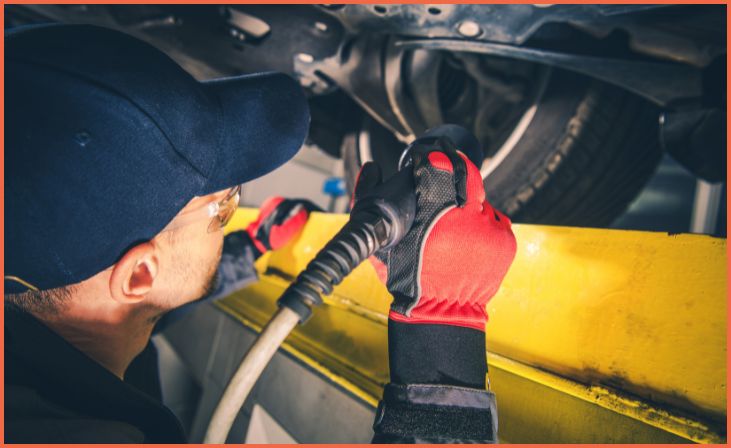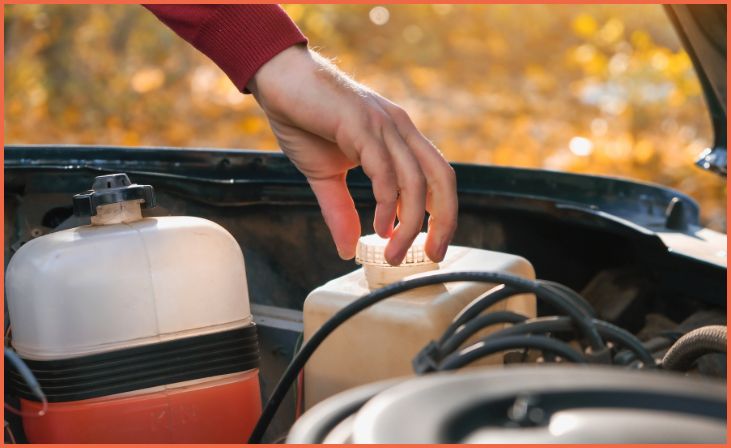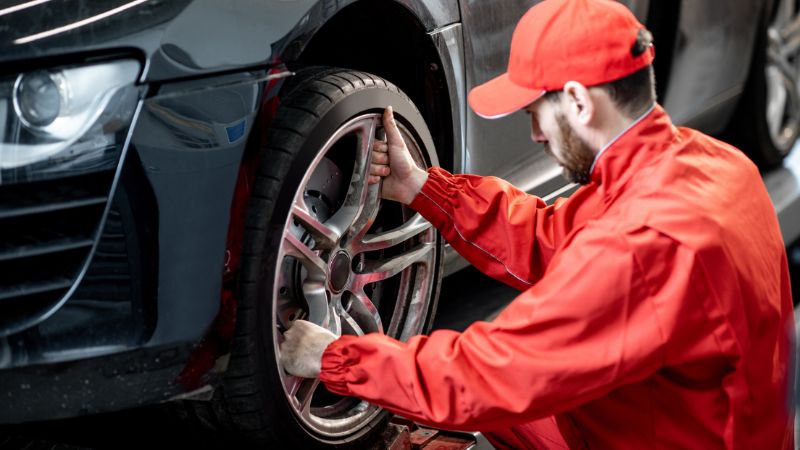Car maintenance is an essential aspect of car ownership, yet it can often feel daunting and overwhelming for many drivers. The question of whether to tackle maintenance tasks as a do-it-yourself (DIY) project or seek the expertise of a professional is a common dilemma. In this blog post, we aim to demystify car maintenance for every driver, providing insights and guidance to help you make informed decisions about how to best care for your vehicle.
Whether you’re a seasoned car enthusiast or a novice driver, understanding the basics of car maintenance is crucial for the longevity and performance of your vehicle. By exploring the DIY approach versus professional services, as well as addressing common FAQs, we hope to empower you to take control of your car’s maintenance needs with confidence and competence.
Top Car Maintenance Facts for Every Driver
Demystifying Car Maintenance for Every Driver offers essential insights and practical tips to empower drivers to understand and manage their vehicle’s upkeep. From deciphering maintenance schedules to navigating DIY tasks versus professional assistance, this guide simplifies car maintenance, ensuring drivers can confidently care for their vehicles and prolong their longevity on the road.
DIY or Professional: Understanding Car Maintenance
Deciding whether to tackle car maintenance tasks yourself or seek professional help can be a pivotal choice impacting your vehicle’s performance and safety. While some tasks, like changing wiper blades or air filters, are relatively straightforward and DIY-friendly, others, such as engine repairs or electrical diagnostics, require specialized knowledge and tools best handled by professional mechanics. It’s crucial to assess your skills, resources, and comfort level before deciding which tasks to undertake yourself and which to delegate to professionals. Remember, safety should always be the top priority, so if you’re unsure about a particular task, it’s better to err on the side of caution and seek expert assistance.
Importance of Regular Maintenance Checks

Regular maintenance checks are the cornerstone of responsible vehicle ownership, helping to identify and address issues before they escalate into costly repairs or safety hazards. Simple tasks like monitoring fluid levels, checking tire pressure, and inspecting belts and hoses can go a long way in preventing breakdowns and prolonging your vehicle’s lifespan. By staying proactive and adhering to your vehicle’s recommended maintenance schedule, you can maintain its performance, reliability, and resale value over time.
Understanding Your Vehicle’s Maintenance Schedule
Every vehicle comes with a manufacturer-recommended maintenance schedule outlined in the owner’s manual, detailing essential tasks and their recommended intervals. These tasks typically include oil changes, tire rotations, brake inspections, and fluid flushes, among others. Adhering to this schedule is crucial for ensuring your vehicle’s longevity and reliability, as neglecting routine maintenance can lead to premature wear and potential mechanical failures. Familiarize yourself with your vehicle’s maintenance requirements and schedule to stay on top of its health and performance.
Also Read: 5 Smart Tips for Truck Drivers to Save Money
DIY-Friendly Maintenance Tasks
Certain maintenance tasks are well-suited for DIY enthusiasts, offering an opportunity to save money and develop hands-on skills. Tasks like changing oil, replacing spark plugs, and installing new air filters are relatively straightforward and can be completed with basic tools and resources. Before attempting any DIY maintenance, be sure to research the task thoroughly, gather the necessary tools and parts, and follow step-by-step instructions to ensure proper execution. Remember to prioritize safety and seek professional help if you encounter any challenges or uncertainties along the way.
Knowing When to Seek Professional Help
While DIY maintenance can be rewarding and cost-effective, there are limits to what can be safely and effectively done at home. Complex repairs, intricate diagnostics, and tasks requiring specialized equipment are best left to professional mechanics with the expertise and resources to handle them properly. Attempting these tasks without proper knowledge and tools can lead to costly mistakes, further damage to your vehicle, or even personal injury. When in doubt, err on the side of caution and consult a trusted mechanic to ensure the job is done correctly and safely.
Importance of Quality Parts and Fluids

Using high-quality parts and fluids is essential for maintaining your vehicle’s performance, efficiency, and longevity. While cheaper alternatives may seem tempting, they often lack the durability, compatibility, and performance of genuine or OEM (Original Equipment Manufacturer) parts. Substandard components can compromise your vehicle’s reliability, fuel economy, and safety, potentially leading to costly repairs or breakdowns down the line. Invest in quality parts and fluids that meet or exceed your vehicle manufacturer’s specifications to ensure optimal performance and protection for your investment.
The Dangers of Neglecting Maintenance
Neglecting routine maintenance can have serious consequences for your vehicle’s safety, reliability, and overall health. Skipping oil changes, ignoring warning lights, and neglecting worn-out components can lead to engine damage, brake failure, and other critical issues that compromise your safety on the road. Routine inspections and preventive maintenance are essential for catching minor issues before they escalate into major problems, saving you time, money, and stress in the long run. Make maintenance a priority and address any concerns promptly to keep your vehicle running smoothly and safely for years to come.
Regular Inspections Save Money
Regular inspections by qualified mechanics are invaluable for identifying potential issues early on and addressing them before they worsen. By investing in preventive maintenance and addressing minor problems promptly, you can avoid costly breakdowns, repairs, and inconvenience down the line. Mechanics have the expertise and tools to conduct thorough inspections, spot hidden issues, and provide recommendations for necessary repairs or maintenance. Schedule regular check-ups according to your vehicle’s maintenance schedule and follow your mechanic’s advice to keep your vehicle in top condition and avoid unexpected surprises on the road.
Importance of Keeping Records

Maintaining detailed records of your vehicle’s maintenance history is essential for tracking its health, identifying patterns of wear and tear, and ensuring timely service intervals. Keep records of all maintenance and repairs, including dates, mileage, and performed tasks, either in a physical logbook or digitally. This information not only helps you stay organized but also serves as valuable documentation when selling or trading in your vehicle. Prospective buyers or dealerships appreciate well-documented maintenance histories, as they indicate responsible ownership and care, potentially increasing the resale value of your vehicle.
The Benefits of Educating Yourself
Even if you prefer to leave most maintenance tasks to professionals, having a basic understanding of your vehicle’s mechanics and maintenance needs empowers you as a vehicle owner. Educating yourself about common issues, maintenance procedures, and warning signs enables you to make informed decisions, communicate effectively with mechanics, and detect potential problems early on. Take advantage of online resources, instructional videos, and workshops to expand your knowledge and skills gradually. By staying informed and engaged in your vehicle’s care, you can enjoy greater peace of mind and confidence on the road, knowing you’re equipped to handle whatever comes your way.
Stay Safe and Informed
Whether you choose to perform DIY maintenance or rely on professionals, safety and knowledge should always be your top priorities. Stay proactive about your vehicle’s maintenance needs, prioritize regular inspections and servicing, and never hesitate to seek expert assistance when needed. By staying informed, proactive, and attentive to your vehicle’s needs, you can ensure its longevity, reliability, and safety on the road, allowing you to enjoy worry-free driving for years to come.
Conclusion
In conclusion, car maintenance doesn’t have to be shrouded in mystery or anxiety. With the right knowledge and resources, every driver can effectively navigate the realm of car maintenance, whether opting for a hands-on DIY approach or relying on the expertise of professional mechanics. By understanding the benefits and limitations of each approach, you can make informed decisions that align with your skill level, resources, and comfort zone. Ultimately, prioritizing regular maintenance and addressing issues promptly is key to ensuring the safety, reliability, and longevity of your vehicle. Whether you choose to roll up your sleeves and take on DIY projects or entrust your car to a professional, staying proactive and informed is the cornerstone of responsible car ownership.
FAQs
How often should I change my car’s oil?
Change the oil in your car’s engine on a regular basis to keep it healthy. As a general rule, it’s recommended to change the oil every 3,000 to 5,000 miles, but this can vary based on your car’s make and model. For specific instructions, look at your owner’s guidebook.
What are some DIY car maintenance tasks I can tackle on my own?
DIY car maintenance tasks that are relatively straightforward for many drivers include checking and topping off fluids, replacing air filters, inspecting and replacing wiper blades, and rotating tires.
When should I seek professional car maintenance services?
While many maintenance tasks can be handled by DIY enthusiasts, certain complex or specialized repairs and maintenance, such as transmission work, electrical system troubleshooting, and advanced engine diagnostics, are best left to experienced professionals.
How can I save money in the long run by taking care of my car regularly?
Regular maintenance helps prevent costly major repairs by addressing minor issues early on. Additionally, a well-maintained car tends to have better fuel efficiency and overall performance, saving you money on fuel and potential breakdowns in the long term.




